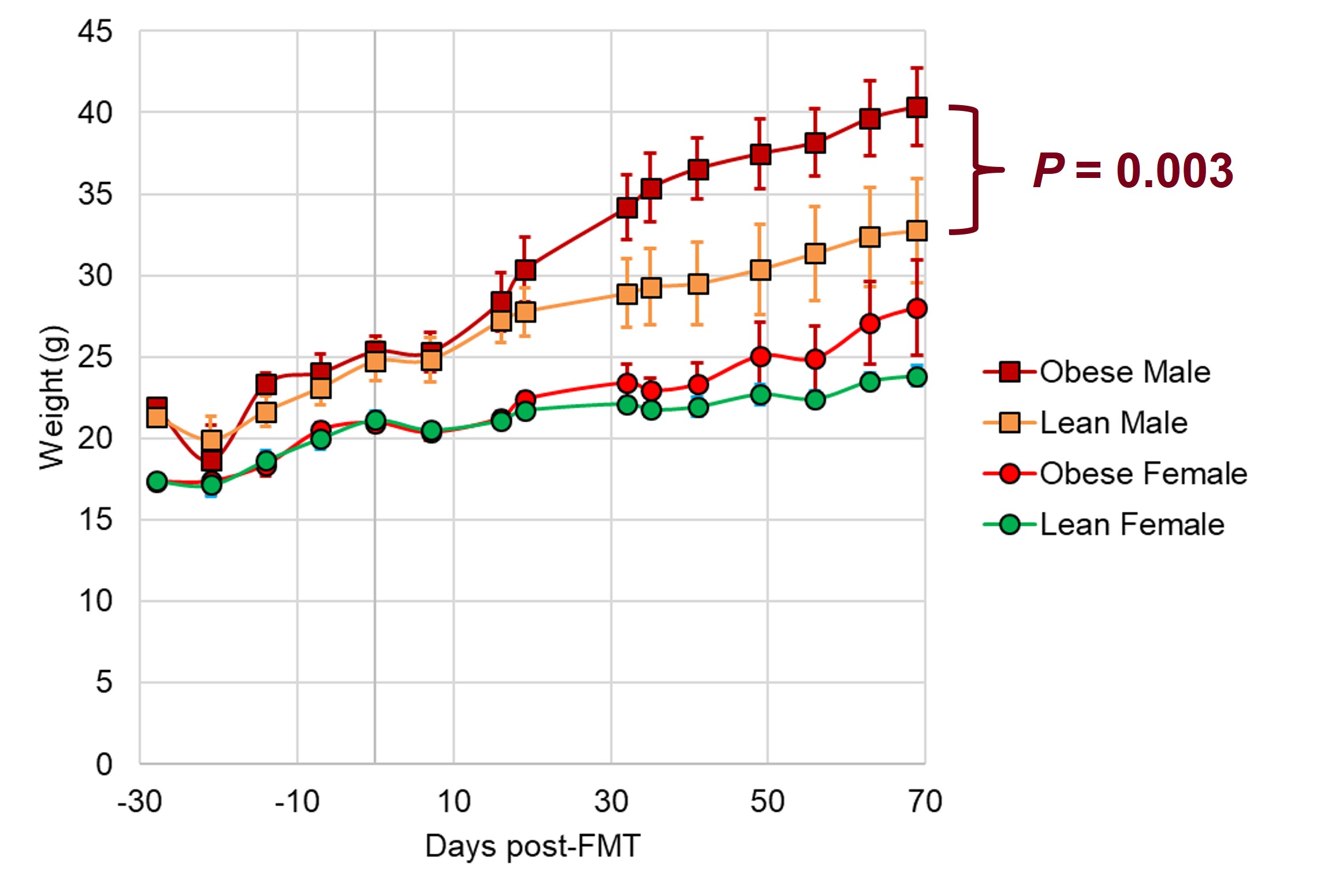Translational (bench-to-bedside) research is reliant on accurate and accessible preclinical models. In 2017, we published our first report of our human-associated microbiota (HMA) mouse model, using specific pathogen free (SPF) lab mice to engraft human microbiota as well as could be done in germ-free models. We have subsequently published our detailed protocol of this method. Our experience using this model in the context of obesity demonstrated limited ability to recapitulate phenotypes (Figure), and greater success in achieving the phenotype was observed in less sterile conditions.

from a single obese or lean human donor.
Current Experiments
-
- 1R21OD035417
- Epigenetic mechanisms of carcinogenesis by Parvimonas micra, an oral cavity commensal turned colon cancer pathogen
- Funding: 1R01CA264048 (funded; ends Aug 2028; Staley co-PI)
- Mechanisms of B Cell Pathogenicity in Non-Alcoholic Fatty Liver Disease
- Funding: 1R01DK122056 (funded; ends Jun 2024; Revelo PI; Staley co-I)
- Barrow F, Khan S, Fredrickson G, Wang H, Robert S, Dietsche K, Kaiser T, Winer S, Adeyi O, Khoruts A, Hogquist KA, Staley C, Winer DA, Revelo XS. (2021). Microbiota-driven activation of intrahepatic B cells aggravates nonalcoholic steatohepatitis through innate and adaptive signaling. Hepatology. 72(4), 704-722. doi: 10.1002/hep.3175